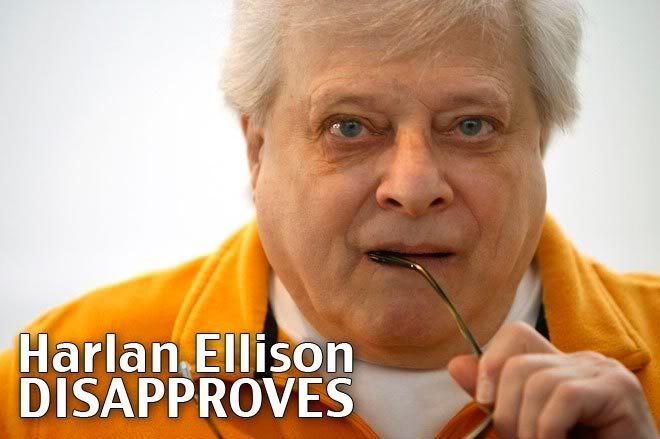You're the only person here who has taken a public stand for perpetual copyright. Another poster repeatedly questioned my character for even postulating that someone could believe something so outlandish, and said I was insulting you by assuming you did.
Perpetual copyright is beside the point when people are arguing for automatic eminent domain.

Oh, I'm sorry. I thought we were discussing the opinion you have, not the opinion you've invented for me.
In that case, let me be unequivocal. Copyright is a vital legal construct for allowing creative individuals and corporations to make a living from their works by guaranteeing them a monopoly on the dissemination of their art. However, the exploitation of that work, by nature, requires that other people be exposed to it, and thus influenced by it. Copyright should therefore be temporary and somewhat forgiving (i.e. "fair use" laws), to avoid a situation where litigious established artists (or, God forbid, their estates) can bring suit against new artists whose work they have directly or indirectly influenced, or a similar case where certain areas of expression are avoided entirely out of fear of that kind of legal action. Such a situation would be no less than the death of art, as copyright would become the instrument of exactly the sort of market-based artistic suppression it is intended to counteract. Copyright law should be reformed to take into account the many issues that have come up over the past century, which are currently patched over simply by extending the protected period over and over again, and prevent the negative consequences of eliminating the public domain.
How far would we be able to see if we're prohibited from standing on the shoulders of the proverbial giants?
Your only explanation for why the public domain should consigned to history has been to write off all the stuff that makes intellectual property its own thing with its own legal protections as that it's "easier to steal," and pretending that physical property and intellectual properties don't work in totally different ways. Oh, and to declare that if you don't know who owns something, then no one owns it, and it must've just appeared out of thin air.
Uh, if you can translate that into English and it's something new, I might respond. Otherwise, I'm pretty much done repeating the obvious.
David cgc: Intellectual property is different than physical property because of [x], [y], and [z]. That's why they have different names.
RJDiogenes: That just means it's easier to steal. Stealing it is still wrong. You don't respect the rights of creators because of the internet.
D: Well, what about stuff like folklore and folk music? Is that just culturally acceptable theft?
R: No, of course not! There are no creators in those cases.
D: But they couldn't just appear out of thin air.
Somebody had to create them, even if we don't know who. Recent material with unknown creators is still copyrighted, and it invites all sorts of problems. Surely if copyright was perpetual, those same problems would extend to the folk arts.
R: I already explained that! You're having us on, or are a thief with warped internet morals!
Does that help? Again, the key question is,
in a world with perpetual copyright, how is it possible to draw a distinction between orphaned works (unknown creator, copyrighted) and folklore (unknown creator, public domain)?
Just address that question, even if you completely ignore the rest of the post. Or, link to the post where you explained the difference (and just saying "It's obvious" isn't an explanation. Walk me through it).
Especially your idea that you can only sue people 10 to 20 years after publication, yet still have a copyright longer than that. Makes no sense.
That's because that's not what I think. You asked if I would've supported Ellison's lawsuit if it had happened a few years earlier, within the copyright period that covered an arbitrarily selected successful author mentioned to illustrate that it's actually possible to make a living as a writer in a world where copyright wouldn't outlive a giant tortoise, and that such a world is not "artistic communism." I did not bring it up because I thought it was the just-right Goldilocks period of copyright protection.
You didn't ask what I thought the law should be, you asked if a change in timeframe could mean that I wouldn't be inclined to think Ellison was acting like a parasitic scumbag by exploiting a surface similarity to his story (and the tendency for corporations to settle out of court to avoid any lawsuit with the slightest suggestion of credibility) to make a quick buck.
I wasn't giving a timeframe in which he should be allowed to sue. I was giving a timeframe where I thought it was more plausible that he'd deserve to win.
My opinion about the merit of Ellison's suit and my opinion about a reasonable timeframe for copyright protection are two separate and distinct issues.



